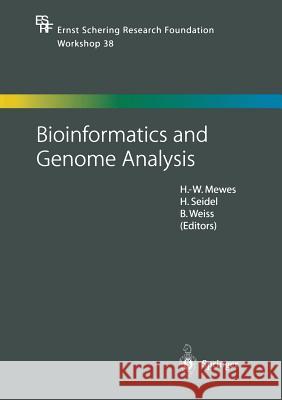Bioinformatics and Genome Analysis » książka
Bioinformatics and Genome Analysis
ISBN-13: 9783662047491 / Angielski / Miękka / 2012 / 300 str.
Bioinformatics is emerging as a field with ever-increasing promise, ur gency, and necessity. All three of these facets can be seen in the con text of the recent sequencing of the human genome. The creation of a novel algorithm for the assembly of whole genome shotgun data sets accelerated the project and resulted in its near completion in 2001. The urgency became apparent with the landslide of data that ensued and the realization that current databases and tool sets are not up to the task. Finally, the necessity of bioinformatics as a facet of molecular biologi cal research becomes evident in the impossibility of individual human comprehension of all the details of the functioning of a cell at the mo lecular level, especially now that we stand on the edge of this preci pice. We find ourselves at a time when we have the essentially complete genomes of human and mouse, and the completed sequences of Droso phila melanogaster, Caenorhabditis elegans, several fungi including Saccharomyces cerevisiae, and many bacteria including Escherichia coli. There are volumes of mRNA expression data sets, high-density maps of highly variable SNPs for both human and mouse, physical marker maps for many other important agricultural and drug trial ani mals, and a complete knock-out survey of yeast. In addition, the se quencing of D. pseudoobscura and Caenorhabditis briggsae in the near future will provide unusual comparative genomic insights.











